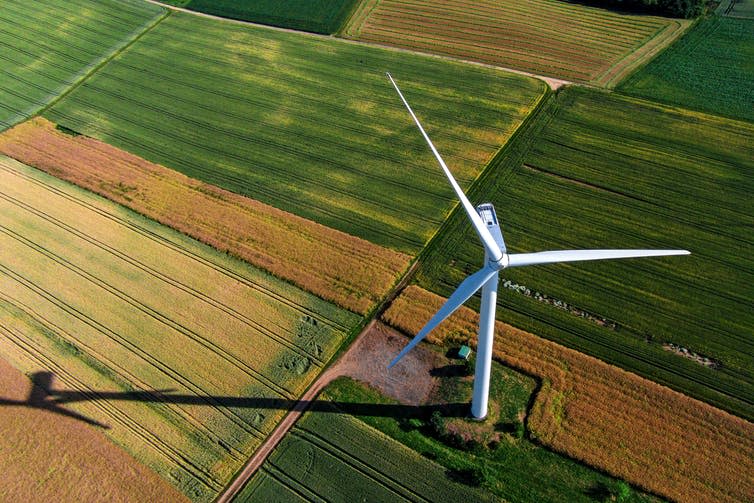Nationalising Britain’s energy networks could be one way to end consumer rip-off – here’s why

For many people, winter means trying to keep the cold out and the heat in. But for the one in ten households in the UK living in fuel poverty, who are unable to afford to properly heat their homes, it can mean the difference between life and death.
Indeed, research by National Energy Action and climate-change charity E3G found that there were 17,000 deaths in the UK due to cold housing conditions last winter. The charity has called for urgent action to put an end to this “entirely preventable” tragedy.
My recent report, conducted with Citizens’ Advice, also shows that energy companies are failing to meet their statutory obligations to protect vulnerable customers – and that this is harming people’s mental and physical health.
Our research found that the current system was leaving many of the people we spoke to out of pocket by hundreds and in some cases thousands of pounds – these are findings that have been echoed elsewhere. It seems then that the most vulnerable people bear the brunt of an ineffective energy system that does not prioritise the consumer.
Extortionate bills
As part of our research, we interviewed 26 adults in Bristol and Sheffield and the people we spoke to reported a range of economic and social difficulties, mental and physical health problems and other vulnerabilities. Many were in severe fuel poverty and living in cold and sometimes dangerous conditions.
An elderly woman we spoke to who lived alone and was in the early stages of dementia, realised that she was several hundreds of pounds in credit on her energy account. She contacted her energy supplier but felt they were reluctant to reimburse her. She told us how she was particularly unhappy about having to explain her situation from the beginning every time she made contact, which she found exhausting.
As a result of their poor experiences at the hands of energy suppliers, more than one interviewee was paying off energy debt from previous tenants. One man described how he had now decided he would be better off paying off a £2,111 debt than attempting to deal with his energy company again.
An essential service
Energy is legally recognised as an essential service, and the government regulator Ofgem is meant to ensure suppliers maintain equitable access to their service. Legally, these conditions should be met for Ofgem to grant suppliers a licence. But our research highlights how these conditions are far from being met. Indeed, most people who approached their energy supplier for help and support reported poor and inconsistent treatment that left their problem unresolved.
Ofgem has had a “vulnerability strategy” in place since 2013 to address exactly these issues. But the strategy has failed to deliver on its aims –- and the energy industry knows this. Last year, the trade association for gas and electricity suppliers, Energy UK, set up a Commission for Customers in Vulnerable Circumstances that highlighted how Ofgem and energy suppliers were failing vulnerable consumers.
What is needed across the board is affordable energy and decent customer service. The people in our research were clear about what they wanted from their energy provider – and emphasised that when it comes to customer service, any opportunity for face-to-face engagement would be welcomed above phone or internet support.
Nationalise the system
There are also system-wide changes that could help too. As the election campaign gathers pace, Labour has added detail to its plan to nationalise Britain’s energy network.
The plan would see the creation of a National Energy Agency to own and maintain transmission infrastructure. Solar panels would also be a big part of the move to green energy and unused electricity would be used by the National Grid, which would be nationalised. The party says this move is critical to ending fuel poverty and fighting climate change – by diverting profits to green infrastructure and lower energy prices.
Labour argues that a quicker shift towards wholesale renewable energy provision will in itself reduce energy prices and alleviate fuel poverty. This is an idea supported by evidence from the International Renewable Energy Agency.
Opinion polls show that most people support taking the energy sector back into public hands. In fact, state ownership is still the preferred option for most people in the UK across nearly all of the industries. Clearly then there is appetite for such change.

The other main parties are yet to release detailed proposals on the future of the UK’s energy system. But these will be key issues for this election given past failures to alleviate fuel poverty, fears over climate breakdown and future energy security after Brexit.
Labour’s proposals appear to be radical enough to tackle the entrenched fuel poverty that has been described by the charity National Energy Action as “preventable and shameful”. But, of course, nationalisation is a complex project spanning more than one political term. Meaning that it will not deliver quick results.
But as our research highlights, customers themselves are clear about what they want – current suppliers and a potential future nationalised service now just need to properly listen.

This article is republished from The Conversation under a Creative Commons license. Read the original article.

Aimee Ambrose does not work for, consult, own shares in or receive funding from any company or organisation that would benefit from this article, and has disclosed no relevant affiliations beyond their academic appointment.

